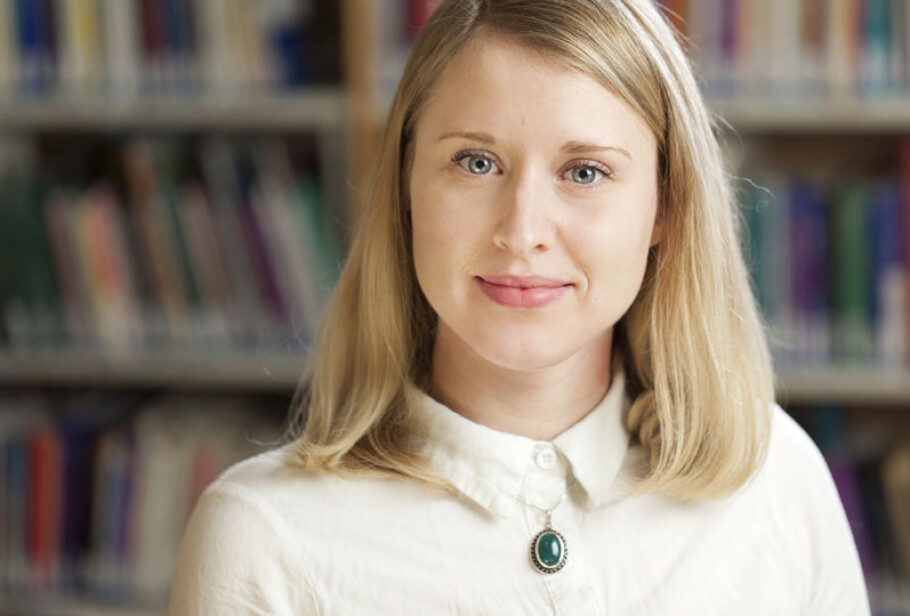This article was produced and financed by Oslo Metropolitan University - read more

Women and men do not have different attitudes to sickness absence
The myth has been dispelled: New research shows that there are no gender differences in attitudes and norms regarding sickness absence.
Norwegian women are more absent due to sickness than men.
Although the reasons for these gender differences have been studied for several decades, we still know surprisingly little about the contributing factors to this phenomenon.
‘Different gender based attitudes and norms regarding sickness absence are a popular explanation for the differences, but our study concludes that there is not greater social acceptance of women being on sick leave than men,’ says Gøril K. Løset, doctoral research fellow at NOVA, Oslo Met.
Together with colleagues she has written a research article published in the scientific journal PLOS ONE.
An unresolved mystery
Sickness absence with a medical certificate is over 70 per cent higher for women than for men, according to Statistics Norway, but we don’t know enough about why this is the case.

Previous research has focused on explanations that may suggest that women have more health issues or are more exposed to illness and strain than men.
Research has concluded that pregnancy-related conditions can account for around half of the gender gap in absence due to sickness in the 20 to 39 age group.
There is, on the other hand, little research to support the notion that women are more absent due to sickness because they have more responsibilities in the home combined with work than men have, or that women generally have jobs that involve more strain than men.
The gender gap in sickness absence remains, therefore, an unsolved mystery.
Different attitudes to and norms for sickness absence?
In the public debate, many have voiced the opinion that women are more tolerant in their attitude towards sickness absence than men, or that it is more socially accepted for women to be absent due to illness, and that this can explain the gender differences in sickness absence.

The idea that women in general have more commitments relating to the home and children than men, while they also work outside the home, could, for example, create a lower threshold for women to take sickness absence than for men.
The fact that women are viewed as being less competitive than men can also mean that women, to a greater extent than men, emphasise the health benefits of sickness absence over the potentially negative consequences of sickness absence in relation to their career.
These assumptions have now been further investigated by researchers in a large research project at NOVA funded by the Research Council of Norway with Tale Hellevik as project manager.‘We devised an experimental questionnaire survey where 900 female and 900 male employees took part,’ explains Hellevik.
The participants were presented with different sickness absence scenarios, and were to answer how acceptable they thought sickness absence with a medical certificate was based on the different scenarios.
Here is an example from the study:
‘Alf works as a postal worker. He has had a cold for a couple of weeks and has been going to work. Now his nose has become more blocked and he has a headache, and a feeling of pressure above his eyes. He has a slight temperature, and is generally not feeling very well. Alf has been at home for three days with a self-certificate, but feels that he needs more time before he returns to work. How reasonable or unreasonable do you think it is that Alf gets a medical certificate from a doctor in this situation?’
The employees provided a total of 10,800 answers to equivalent scenarios where the gender, profession and health situation were randomly chosen.
The study was conducted in such a way that the researchers could determine whether men and women in general evaluate sickness absence with a medical certificate differently, and whether their evaluations are linked to the gender of the person described in the scenario.
‘The results from the study indicate that men and women in general judge sickness absence on equal terms,’ says Hellevik. ‘Women and men thus do not have different attitudes to sickness absence.’
The researchers could not find anything that indicated that sickness absence among women was evaluated differently than sickness absence among men. The norms for acceptable sickness absence with a medical certificate is, in other words, the same for women and men.
Challenges equality in the labour market
It is a paradox that we have such a big difference between the genders when it comes to sickness absence in a country like Norway where equality is so established, where participation in the labour market and education, in addition to equality in the care of children and housework are considered so important.
At the same time, gender differences in sickness absence is not a uniquely Norwegian phenomenon, but something we see in many other European countries with a high number of women in employment.
Researchers believe that the gender difference in sickness absence is in itself a challenge for equality in the labour market. At the same time, myths and assumptions about what causes this difference can pose an additional threat to an equal labour market.
‘We must also bear in mind that the gender differences are much smaller in self-certificated sickness absence,’ Løset points out. ‘This largely refutes the assumption that women have a weaker work ethic and a more tolerant attitude towards sickness absence with a medical certificate than men.’
Different health behaviour
There is no clear explanation as to why women are more absent due to sickness than men, but the gender gap in sickness absence is similar to gender differences in other types of health behaviours.
Women in general are more concerned with their health and visit the doctor more frequently.
This can also explain why there is higher sickness absence among women than men.
The fact that women visit the doctor more regularly can also indicate both biological and social differences between the genders in the way they react to strain and illness.
‘We cannot say for certain that the gender differences in sickness absences are too big, or that women’s sickness absence is too high compared with men,’ concludes Løset.


































